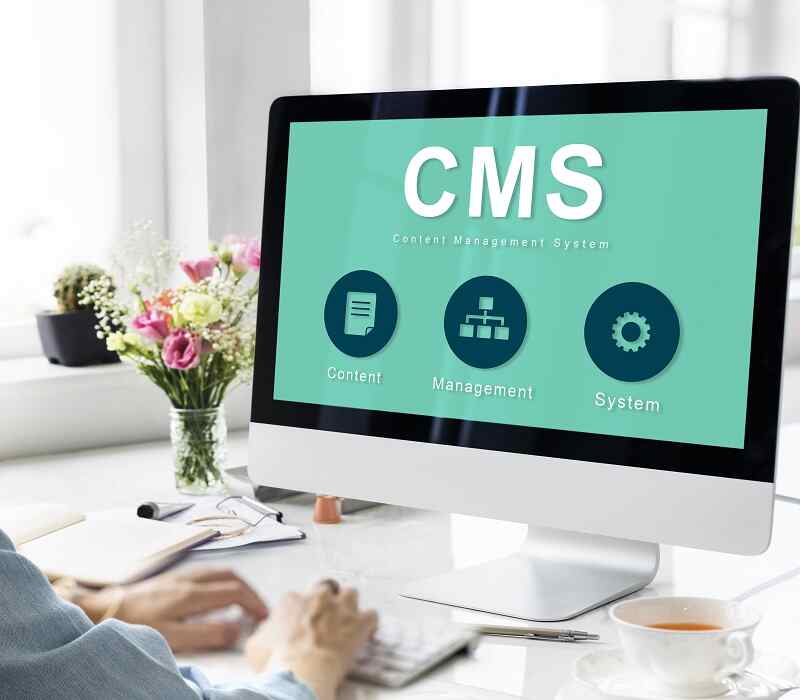Introduction
In today’s digital world, businesses need more than just a basic website. Large companies, especially, require powerful, secure, and scalable systems to handle their operations. This is where enterprise web solutions come into play.
Unlike standard websites, enterprise solutions are built to manage high traffic, complex workflows, and strict security demands. They ensure that everything runs smoothly, even under heavy use.
This guide will explain what enterprise web solutions are, why they matter, and how they differ from regular websites. We’ll also explore key features, real-world applications, and how to choose the right solution for your business.
Why Enterprise Web Solutions Are Essential for Large Businesses
Small businesses can often get by with simple websites. But when a company grows—serving thousands of customers, processing transactions, or managing sensitive data—a basic site won’t cut it.
Enterprise web solutions are designed to handle the unique challenges of large organizations:
- Massive traffic spikes – A retail site during Black Friday or a government portal during tax season must stay fast and stable.
- Strict security needs – Banks, hospitals, and corporations can’t afford data breaches.
- Complex integrations – Enterprise systems must work seamlessly with tools like ERP, CRM, and payment gateways.
Without these solutions, businesses risk downtime, security vulnerabilities, and lost revenue.
Key Features of Enterprise Web Solution
Not all websites are built the same. Enterprise-grade platforms come with advanced capabilities that set them apart.
1. Scalability: Growing Without Limits
A small business website might handle a few hundred visitors a day. But an enterprise solution must support millions of users without slowing down.
Cloud-based architectures, load balancing, and auto-scaling ensure the system expands as needed. Companies like Amazon and Netflix rely on these technologies to stay operational during peak demand.
2. Enterprise-Level Security
Cyberattacks are a constant threat for large organizations. Enterprise web solutions include:
- End-to-end encryption (protecting data in transit and at rest).
- Multi-factor authentication (MFA) to prevent unauthorized access.
- Regular security audits and compliance checks (GDPR, HIPAA, etc.).
For example, financial institutions use fraud detection systems to block suspicious transactions in real time.
3. Seamless Integrations
Big companies use dozens of software tools—accounting systems, inventory managers, customer support platforms. An enterprise website must connect with all of them.
APIs (Application Programming Interfaces) allow different systems to communicate. For instance, an e-commerce site might link with Salesforce for CRM, QuickBooks for accounting, and Shopify for orders.
4. High Availability & Reliability
Downtime is expensive. Enterprise solutions guarantee 99.9% uptime through:
- Redundant servers (if one fails, another takes over).
- Automated backups (preventing data loss).
- 24/7 monitoring (fixing issues before they cause problems).
Airlines, for example, can’t afford booking system crashes during peak travel seasons.
How Enterprise Web Solutions Differ from Regular Websites
A standard website is like a bicycle—great for short, simple trips. An enterprise solution is more like a bullet train—built for speed, capacity, and long-distance travel.
Here’s a quick comparison:
| Feature | Regular Website | Enterprise Web Solution |
|---|---|---|
| User Capacity | Hundreds of visitors | Millions of simultaneous users |
| Security | Basic SSL encryption | Advanced firewalls, MFA, compliance checks |
| Cost | Affordable | Higher investment (but cost-effective long-term) |
| Maintenance | Occasional updates | 24/7 support, real-time monitoring |
Industries That Rely on Enterprise Web Solutions
Nearly every large-scale business sector depends on these systems. Here are a few examples:
1. E-Commerce & Retail
Sites like Amazon, Walmart, and Alibaba need:
- Instant load times (even during sales events).
- Personalized recommendations (using AI and big data).
- Secure checkout systems (handling millions of transactions daily).
2. Banking & Finance
Banks use enterprise solutions for:
- Real-time fraud detection.
- Mobile banking apps with biometric login.
- Secure API integrations with payment processors like PayPal.
3. Healthcare & Telemedicine
Patient portals must:
- Keep medical records confidential (HIPAA compliance).
- Support video consultations and prescription tracking.
- Integrate with lab systems and insurance providers.
4. Government & Public Services
Citizen portals handle:
- Tax filings, license renewals, and public records.
- High traffic during election seasons or crisis events.
- Secure document submissions with digital signatures.
Choosing the Right Enterprise Web Solution
Not all enterprise systems are the same. Here’s how to pick the best one for your business:
1. Assess Your Needs
- How many users will access the system?
- What security regulations apply to your industry?
- Which software tools do you need to integrate?
2. Look for Customization Options
Off-the-shelf solutions may not fit. A customizable platform ensures the system grows with your business.
3. Check Vendor Reputation & Support
- Do they offer 24/7 technical support?
- Have they worked with businesses like yours?
- What’s their average uptime and response time?
4. Consider Future-Proofing
Technology changes fast. Choose a solution that supports AI, blockchain, or IoT if needed.
Final Thoughts: Are Enterprise Web Solutions Worth the Investment?
For small businesses, a basic website may be enough. But if your company is growing—or already large—enterprise web solutions are a must.
They prevent downtime, security breaches, and inefficient workflows. More importantly, they save money in the long run by avoiding costly fixes later.
The right solution depends on your industry, budget, and future goals. But one thing is clear: In the digital age, enterprise web solutions aren’t just an option—they’re a necessity.
